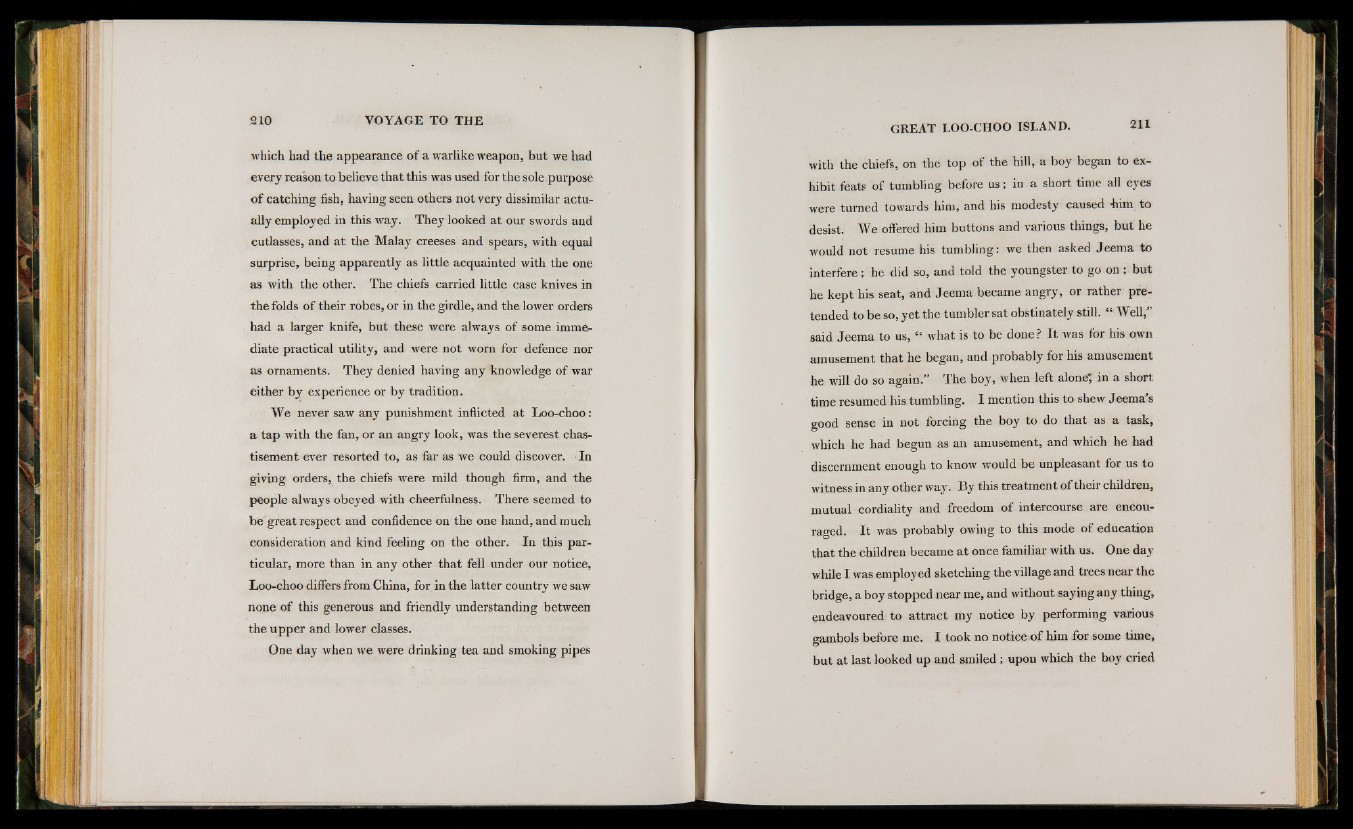
which had the appearance of a warlike weapon, but we had
every reason to believe that this was used for the sole .purpose
of catching fish, having seen others not very dissimilar actually
employed in this way. They looked a t our swords and
cutlasses, and at the Malay creeses and spears, with equal
surprise, being apparently as little acquainted with the one
as with the other. The chiefs carried little case knives in
the folds of their robes, or in the girdle, and the lower orders
had a larger knife, but these were always of some immediate
practical utility, and were not worn for defence nor
as ornaments. They denied having any knowledge of war
either by experience or by tradition.
We never saw any punishment inflicted a t Loo-choo:
a tap with the fan, or an angry look, was the severest chastisement
ever resorted to, as far as we could discover. In
giving orders, the chiefs were mild though firm, and the
people always obeyed with cheerfulness. There seemed to
be great respect and confidence on the one hand, and much
consideration and kind feeling on the other. In this particular,
more than in any other that fell under our notice,
Loo-choo differs from China, for in the latter country we saw
none of this generous and friendly understanding between
the upper and lower classes.
One day when we were drinking tea and smoking pipes
with the chiefs, on the top of the hill, a boy began to exhibit
feats of tumbling before u s; in a short time all eyes
were turned towards him, and his modesty caused him to
desist. We offered him buttons and various things, but he
would not resume his tumbling: we then asked Jeema to
interfere; he did so, and told the youngster to go on but
he kept his seat, and Jeema became angry, or rather pretended
to be so, yet the tumbler sat obstinately still. “ Well,”
said Jeema to us, §g what is to be done? I t was for his own
amusement that he began, and probably for his amusement
he will do so again.” The boy, when left alone; in a short
time resumed his tumbling. I mention this to shew Jeema’s
good sense in not forcing the boy to do tha t as a task,
which he had begun as an amusement, and which he had
discernment enough to know would be unpleasant for us to
witness in any other way. By this treatment of their children,
mutual cordiality and freedom of intercourse are encouraged.
I t was probably owing to this mode of education
that the children became a t once familiar with us. One day
while I was employed sketching the village and trees near the
bridge, a boy stopped near me, and without saying any thing,
endeavoured to attract my notice by performing various
gambols before me. I took no notice of him for some time,
but at last looked up and smiled; upon which the boy cried